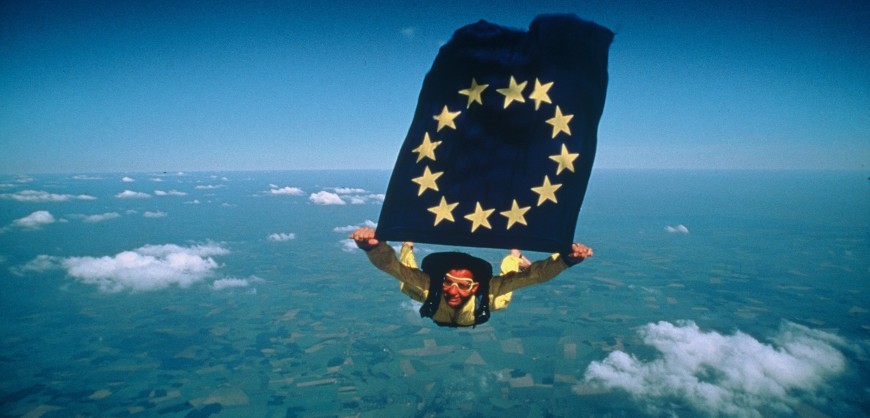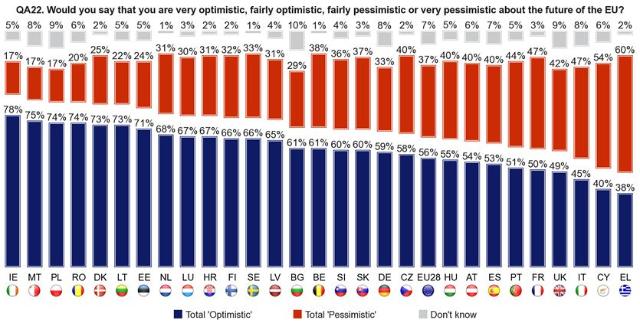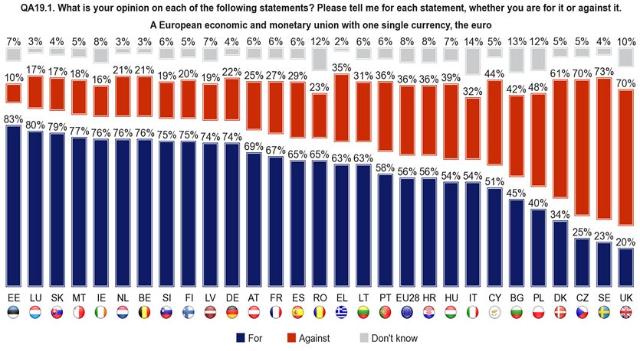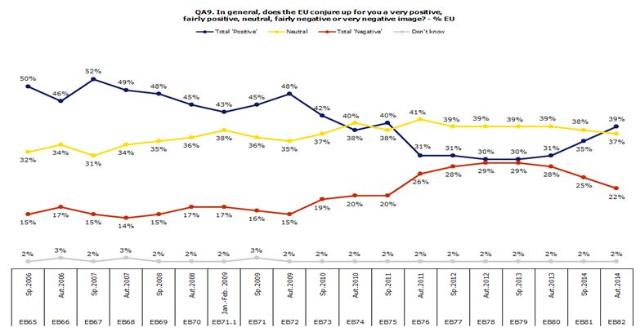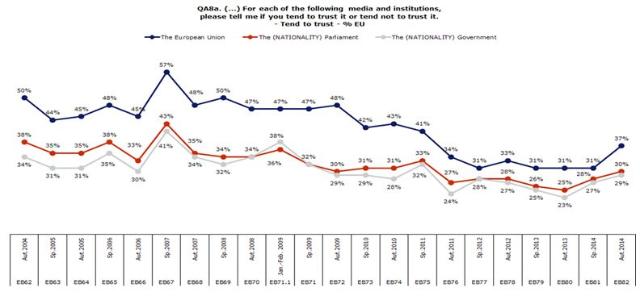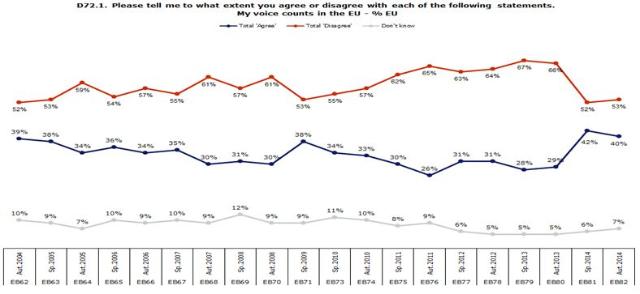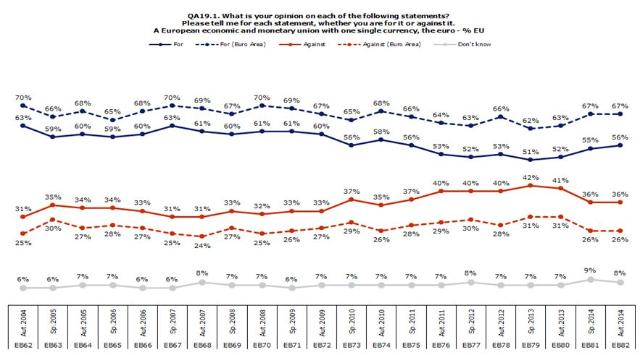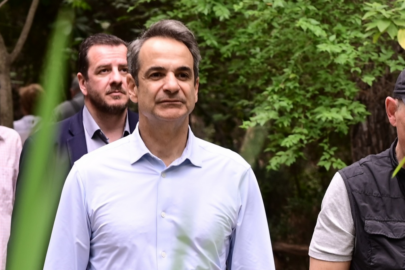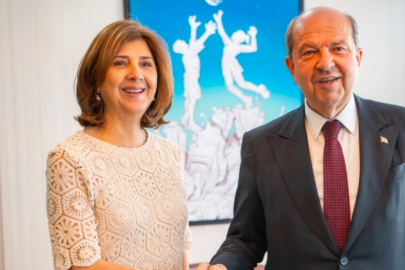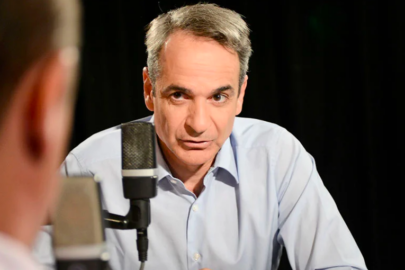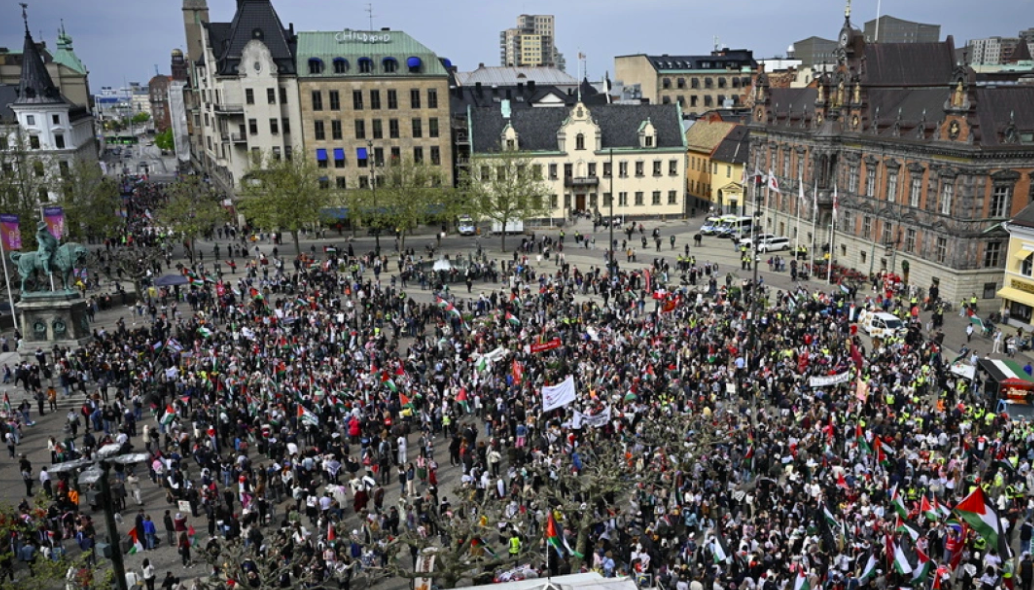The standard Eurobarometer survey results for Autumn 2014 published its first results since Jean-Claude Juncker took over at the helm of the European Commission on November 1, 2014. A total of 32,598 people were interviewed across the EU Member States and candidate countries.
Political indicators
The new results show that more citizens have a positive image of the European Union and trust the EU. There is also considerable public support for the key policy areas outlined in the Commission’s Political Guidelines.
The number of Europeans who say they have a positive image of the EU has risen from 35% last June to 39% in November. 37% have a neutral image and 22% a negative image (down from 25% in June).
Moreover, the number of Europeans who say they trust the European Union has also risen to 37% (up 6 percentage points since the previous survey immediately after the European Parliament elections). The average level of trust in national governments has also risen slightly to 29% (+2 points).
The number of people who say that their voice counts in the EU has declined (40%, -2 points) after having reached a 10 years peak right after the Europe elections in May 2014.
Europe and the euro
On the economy, the expectations of Europeans remain rather stable, with more than one in five of them (22%, -1 point) being optimistic about the next twelve months while 45% expect the situation to remain the same. This means that more than six Europeans out of ten think that the economic situation will not worsen. The number of Europeans who think that the impact of the crisis on jobs has already reached its peak (44%, -2) is slightly less than those who think “the worst is still to come” (46%, +2).
The positive stance on the euro is stable (56% in the EU, 67% in the euro area). Support for the single currency has risen in 18 Member States, most strikingly in Lithuania (63%, +13) which will join the euro zone on 1 January 2015 and Latvia (74%, +6).
European concerns
In terms of citizens’ main concerns, immigration continues to rise in the ranking of the most frequently cited issues at national and EU levels. With 24% (+3 points) it is now the fourth most frequently cited item at EU level and with 18% (+3 points) the third most frequently cited item at national level. In Malta, the UK and Germany citizens even cite it as number one concern.
The Eurobarometer survey also shows a strong endorsement by citizens of the priority topics set by the Juncker Commission.
On investment within the EU, over 60% of Europeans agree public money should be used to stimulate private sector investment at EU level.
On energy, 73% of Europeans are favourable to a common energy policy among EU Member States.
Most Europeans regard the single market (the free movement of people, goods and services within the EU) as one of the most positive achievement of the EU (52%), after peace among the Member States (56%).
Regarding the issue of migration, 71% of Europeans say they are in favour of a common European policy on migration. Most Europeans (52%) are positive about immigration of people from other EU Member States.
Finally, citizens remain optimistic about the future of the EU. 56% (no change) of Europeans say they are optimistic while 37% (-1) say they are pessimistic.

